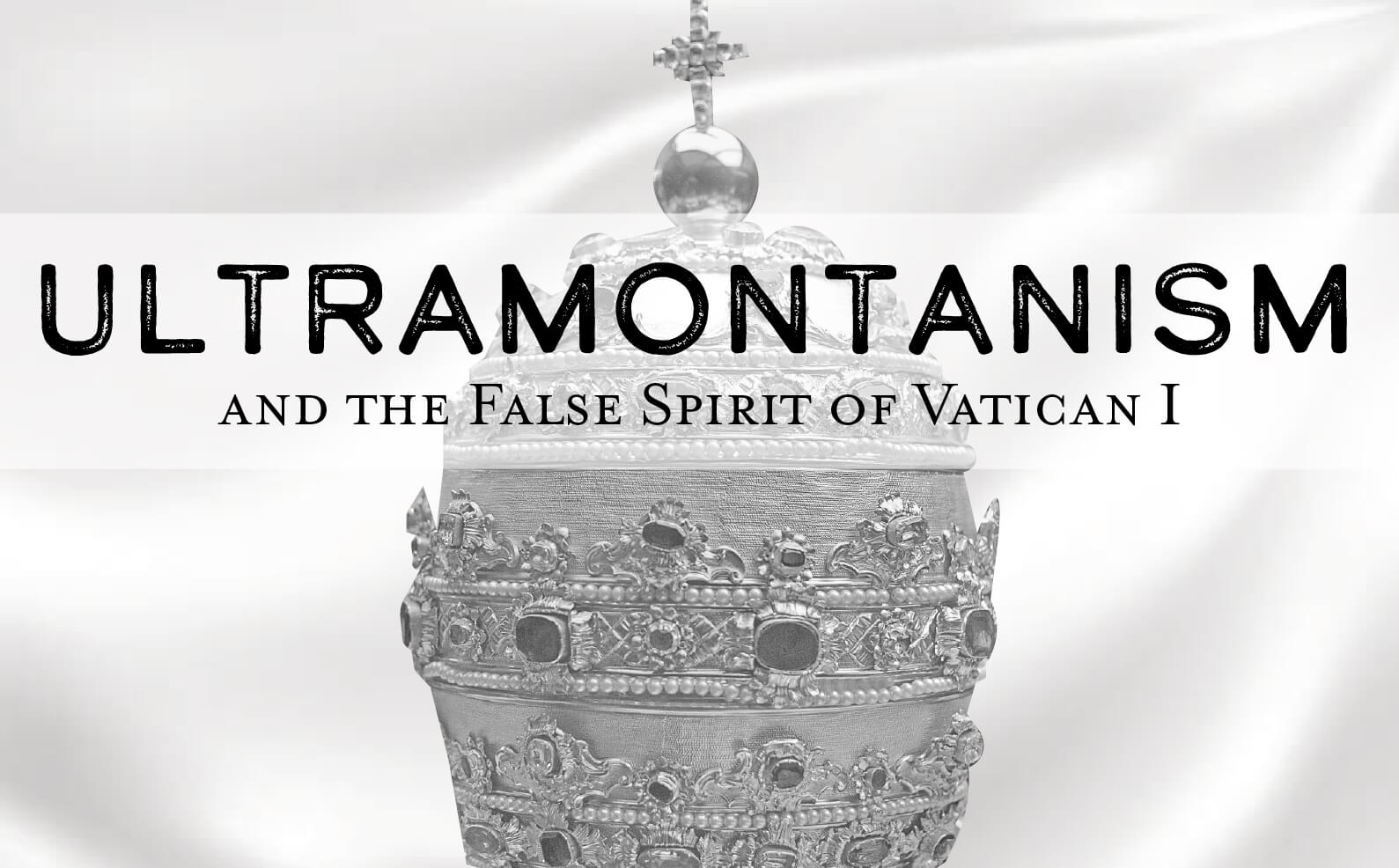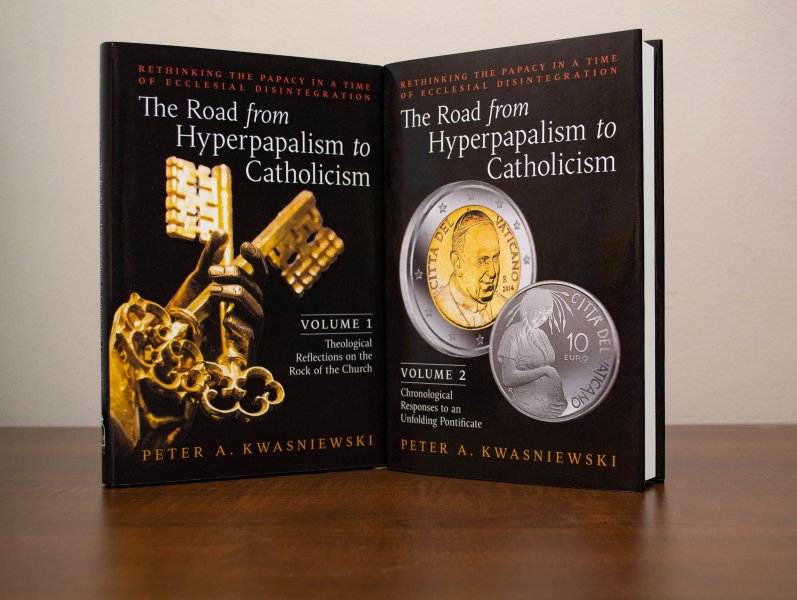When we released our editorial stance last year we identified one error above others which seems to be at the root of our current crisis: the false spirit of Vatican I.
This false spirit – meaning a false interpretation of said council – goes by many names: hyperpapalism, neo-ultramontanism, extreme ultramontanism or my personal favourite, hyperüberultramontanism.
This false idea is described well by Dr. Kwasniewski in an important, recent essay:
When the Magisterium’s authority is taken as an absolute, it trumps not only all Scripture and all Tradition but also all previous acts of the Magisterium. Only what the current papal monarch says carries weight. Those living under such a mindset have to embrace today’s papal statements wholeheartedly, but they have to drop them just as thoroughly if the next Pope says something different or new. Anything else would deny the current Pope’s absolute authority. Consequently, on this view there is no content definitive of Catholicism.
Historically, this view arose before and after Vatican I, and was later used by the reformers to impose the liturgical rupture of the Novus Ordo and the attempted suppression of the Latin Mass.
Ratzinger opposed this excess of papal authority and the liturgy, and tried to promote a more balanced view, which seems to have contributed to the promulgation of this line in the newest catechism:
Even the supreme authority in the church may not change the liturgy arbitrarily, but only in the obedience of faith and with religious respect for the mystery of the liturgy (CCC 1125).
He commented on this passage in his preface to Alcuin Reid’s Organic Development of the Liturgy:
It seems to me most important that the Catechism, in mentioning the limitation of the powers of the supreme authority in the Church with regard to reform, recalls to mind what is the essence of the primacy as outlined by the First and Second Vatican Councils: The pope is not an absolute monarch whose will is law; rather, he is the guardian of the authentic Tradition and, thereby, the premier guarantor of obedience.[1]
Under the current pontificate, we have seen the dismantling of not only Ratzinger’s work in this area, but another attempt against the whole Trad movement. The enemies of our movement vilify us as schismatic by means of this false spirit of Vatican I. Therefore we must go to the root of this issue and dissect it piece by piece.
Thankfully, our contributing editor, the aforementioned Peter Kwasniewski, has already released the treatise True Obedience in the Church: a Guide to Discernment in Challenging Times (free for seminarians and all clerics). Now our friends at Arouca Press have released his two volume treatise on our subject: The Road from Hyperpapalism to Catholicism: Rethinking the Papacy in a Time of Ecclesial Disintegration.
In the coming months, in dialogue with Kwasniewski’s treatises, we want to dive deeper into this subject: its history, theological note and development, and most importantly, reflections on possible solutions to this critical issue of our time. As a new conclave with a stacked curia looms in the not-too-distant future, we need to tackle this issue head on. Undermining this false spirit of Vatican I may very well be the way that God brings good out of evil due to this pontificate. Submissions on this topic will receive top priority for publications, so we welcome contributions from all Catholics on this topic.
Jesus is King!
T. S. Flanders
Editor
Friday after the Octave of the Ascension
First Friday
[1] Joseph Cardinal Ratzinger, “Preface,” in Dom Alcuin Reid, The Organic Development of the Liturgy (San Francisco, CA: Ignatius Press, 2005), 10.



